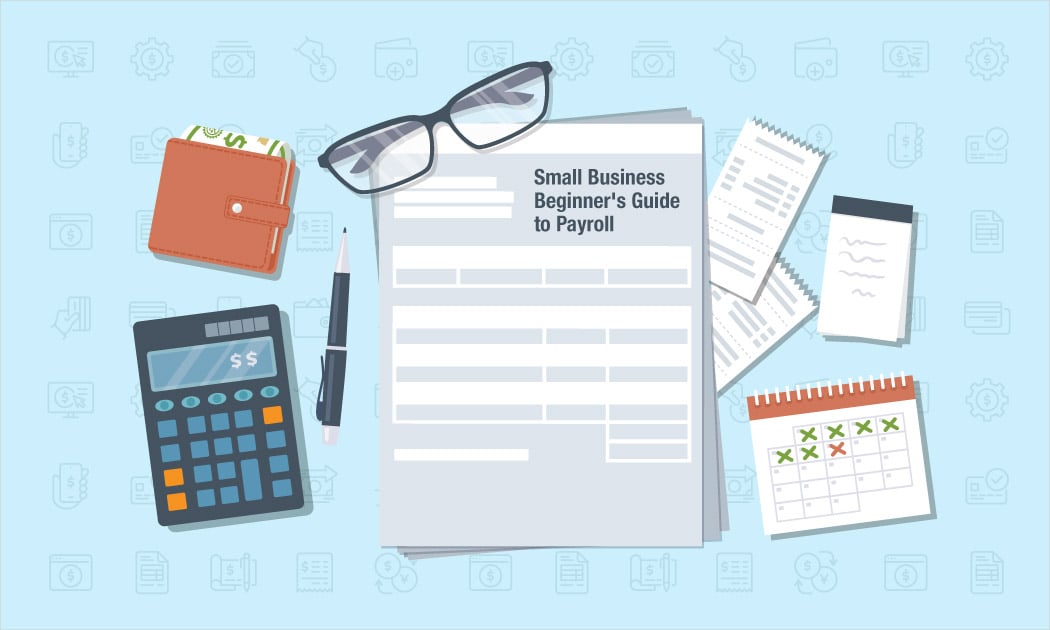The Payroll Blog
News, tips, and advice for small business owners
- Home
- Resources
- Payroll Blog
- Understanding How Much Small Business Payroll Costs
Understanding How Much Small Business Payroll Costs
When searching for an online payroll service for your small business payroll needs, one of the most important things you’ll consider is cost.

While there are other areas you should be evaluating, such as payroll features, customer service support, cost is always a top thing to consider when running a business. However, there isn’t a simple answer to how much will payroll cost, and there are a variety of factors you’ll need to know about.
The Top Payroll Costs
There are a few payroll costs that you can expect to come across in your search. The top items that impact small business payroll costs are:
- The total number of employees
- How often employees are paid based on payroll schedules
- If your employees live in a different state from where they work
- Whether you pay via direct deposit or paper check
There are also some common payroll costs that may either be upfront or hidden. For example, if you’re looking for a full-service payroll option, the cost may be more if you’re getting help with tax filing. While that may cost more per month, it could save you in the long run if you are prone to making tax mistakes. Some other factors could be sign-on costs, breaking a contract with the service, and getting support with W-2's and 1099’s at year-end.
The Cost of Getting Payroll Wrong
According to our survey, 32% of small business owners have made a mistake on payroll. While some payroll mistakes may have a fast fix and little impact to your business, others can be costly and time-consuming to fix. For example, multiple payroll mistakes can be a red flag for the IRS and result in an audit or fine.
Some of the most common payroll mistakes small business owners make include:
- Misclassifying employees
- Incorrectly calculating payroll taxes
- Misprocessing wage garnishments
All of these mistakes can lead to increases in costs. For example, if you classify an employee exempt when they should be non-exempt, they are missing out any overtime wages. You’ll have to pay back those wages when you realize the mistake. The same happens with incorrectly calculating payroll taxes. If you withheld incorrect amounts, you could have to pay back lost wages or pay more to the government. Those costs can add up and cause more headaches.
What Else to Consider Besides Cost When Choosing an Online Payroll Service
While cost is a very important factor to consider when comparing online payroll services, there are some other things you’ll want to be aware of.
- Customer service. When you have questions or need help with your account, make sure there are a variety of ways to get in touch with the customer service team.
- Payroll processing window. Many payroll companies have a four-day debit period meaning funds come out of your account sooner. Some companies have a two-day period which is nice for hanging onto funds longer which can help with any cash flow issues you run into.
- Tax support. If you’re looking for a full-service payroll option, make sure you’re looking at how you get help with taxes. Additionally, if a mistake happens when your taxes are paid and filed, you’ll want to know how the company helps with that.
While cost is important, you don’t want to sacrifice savings when you’re getting a service that doesn’t really fit for your small business payroll needs.
Bottom Line
There won’t be a one size fits all cost approach to online payroll support for small business owners. Make sure to do your research and compare what features you must have, and what you think you can live without or handle on your own.
Related Blog Posts
View Our Plans and Pricing
Small Business Is Our Business.
This website contains articles posted for informational and educational value. SurePayroll is not responsible for information contained within any of these materials. Any opinions expressed within materials are not necessarily the opinion of, or supported by, SurePayroll. The information in these materials should not be considered legal or accounting advice, and it should not substitute for legal, accounting, and other professional advice where the facts and circumstances warrant. If you require legal or accounting advice or need other professional assistance, you should always consult your licensed attorney, accountant or other tax professional to discuss your particular facts, circumstances and business needs.



